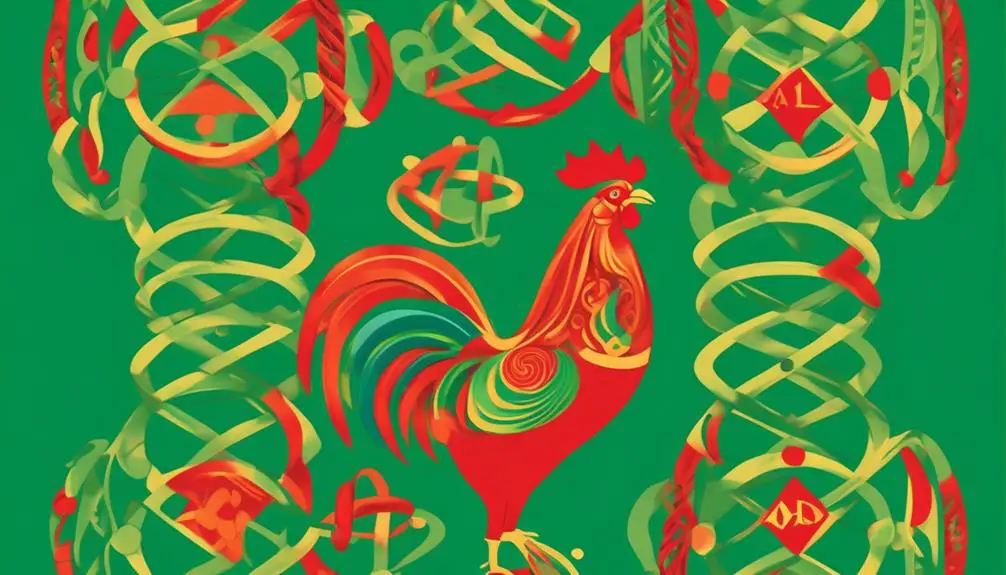As a genealogist specializing in Iberian ancestry, my experience navigating the labyrinth of DNA tests has been extensive. I believe the quest for understanding one's Portuguese heritage is deeply personal.
Through my work, I've witnessed the joy in others as they unveil their connections to Portugal's storied past. The best DNA test for this purpose, in my experience, is one with a comprehensive database of Iberian genetic markers, offering insight into the nuances of Portuguese lineage.
For me, this journey transcended data; it was an emotional revelation of my place within the grand mosaic of history.
Key Takeaways
- DNA tests can provide insights into the genetic influences in Portuguese ancestry.
- The genetic makeup of Portugal reflects its complex history of invasions, migrations, and exploration.
- Ethnicity estimates from DNA tests can pinpoint specific regions in the Iberian Peninsula where ancestors hailed from.
- Y-DNA and mtDNA haplogroups offer insights into paternal and maternal lineages in Portuguese ancestry.
Analyzing Portuguese Ancestry

When you delve into a DNA test for Portuguese ancestry, you uncover a tapestry of genetic influences that echo the nation's complex history of invasions, migrations, and exploration. Through DNA analysis, you'll find a blend of European ancestry shaped by pre-Roman and post-Roman inhabitants, Germanic tribes, Norse adventurers, Moorish settlers, and Slavic groups.
The specific regions of the Iberian Peninsula your ancestors hailed from can be pinpointed with ethnicity estimates that compare your genetic makeup against reference populations. Y-DNA and mtDNA haplogroups, such as E1b1b and R1b, offer a glimpse into your paternal and maternal lineages, tracing back through centuries of ancestral footprints.
In essence, your ancestry DNA reveals a story of convergence and diversity, quintessential to Portuguese heritage.
Top DNA Tests Reviewed
If you're exploring your Portuguese roots, choosing the right DNA test is crucial, and we've reviewed the top options to help you make an informed decision. Here's a snapshot comparison to guide your choice:
| Test Kit | Database Size | Notable Features |
|---|---|---|
| AncestryDNA | Largest | 30% discount, extensive family-matching |
| 23andMe | Large | Detailed ethnicity for 43 Iberian genetic groups |
| FamilyTreeDNA | Moderate | Maternal and paternal lineage analysis |
Each DNA testing service offers unique insights into your Portuguese genetic heritage and family history. Consider the database size for potential family matches, the level of detailed ethnicity analysis, and the privacy policies of each company. Remember, the best DNA test for you depends on what aspects of your ethnic origins and genetic testing interests you most.
Understanding Your Results

Diving into your DNA test results can unlock the secrets of your Portuguese heritage, offering a glimpse into the ethnic tapestry that has shaped your family's story. Understanding your results means deciphering the percentage of your DNA linked to various regions, including Portugal, which can reveal ancestral connections.
DNA testing companies often allow you to compare your DNA with others, enhancing your grasp of both maternal and paternal lines. However, remember that DNA is just one tool in your genealogy toolkit. It can't provide definitive family ties without additional evidence.
Moreover, be mindful of the implications of uncovering sensitive information. DNA results can be surprising, sometimes challenging familial narratives, and might also have health and privacy considerations to bear in mind.
Privacy and Data Security
Often overlooked, the privacy and data security of your DNA information are crucial aspects to consider before undergoing genetic testing. When you're diving into your family tree and finding relatives, it's vital to understand how companies provide protections for your DNA samples. Each service has its own privacy policy, which you should scrutinize to ensure it aligns with your expectations regarding data security.
Be aware that while you're searching for potential relatives, your genetic data could be used for purposes beyond genealogy, like medical diagnosis or law enforcement investigations. Make sure you're comfortable with how your information might be shared.
Beyond the Test: Resources

After receiving your DNA test results, it's crucial to access resources that will help you interpret and apply your newfound knowledge about your Portuguese ancestry. These resources are specifically designed to provide you with the insights needed to delve deeper into your family's past.
- Discover Your Roots: Utilize genealogy research platforms that help you trace the branches of your family tree.
- Connect with Relatives: Find distant relatives and reconnect with long-lost family members.
- Understand Your Heritage: Learn how mitochondrial DNA influences your direct maternal line.
- Best DNA Testing Practices: Make sure you're using the most accurate DNA kits available for Portuguese ancestry.
- Preserve Your Legacy: Create a lasting record of your family history for future generations.
Frequently Asked Questions
Which DNA Test Is Best for European Ancestry?
For European ancestry, you'll want a DNA test that excels in ethnicity breakdown, genealogical research, and regional variations. Look for services offering detailed heritage analysis, DNA matching, and historical migrations tracking.
Which DNA Test Is the Most Accurate for Ethnicity?
You're looking for the most accurate DNA test for ethnicity that pinpoints ancestry breakdown, regional specificity, and indigenous roots using genetic markers within historical context, while considering cultural heritage, privacy concerns, and scientific validity.
What Is the Most Popular DNA Test in Brazil?
You'll find that in Brazil, the most popular DNA test for exploring Brazilian genetics, ancestry tracking, and ethnicity breakdown is one that offers detailed insights into your genetic heritage and ancestral roots.
Spanish and Portuguese DNA Refers to the Genetic Makeup or Ancestry of Individuals From Spain and Portugal.
You're delving into Iberian genetics, seeking ancestral clues and understanding migration patterns. Historical populations shaped genetic differences, from Moorish legacy to Sephardic ancestry, showing regional variations through DNA comparisons that reflect your cultural heritage.
Conclusion
With your Portuguese roots in mind, it's clear AncestryDNA tops the list for its detailed ancestry insights. You'll appreciate the thoroughness and accuracy, especially with that sweet 30% discount.
Remember, understanding your genetic heritage is just the beginning. Keep your data safe and explore the wealth of resources available post-test.
Your journey into your Portuguese past is sure to be as enriching as it's enlightening. Dive in and discover what your DNA has to say!

Throughout his career, Andras Kovacs has developed a deep understanding of DNA and its applications in genealogy and genetic testing. He has helped thousands of individuals uncover their ancestral heritage, using cutting-edge DNA analysis to trace family lineages and reveal connections across generations.

